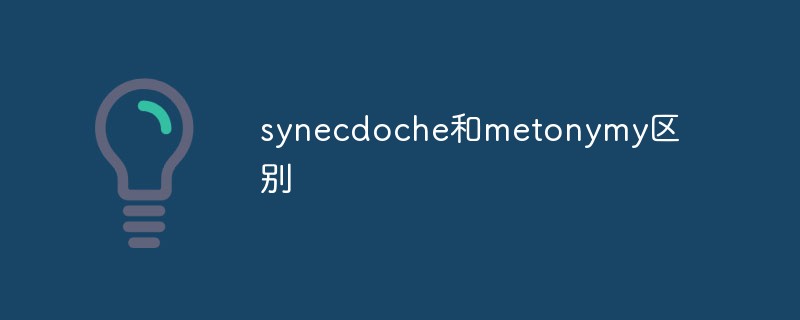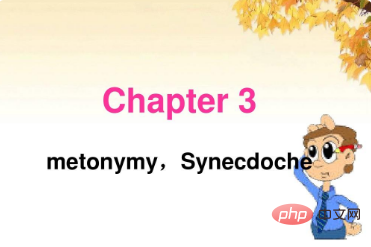Home >Common Problem >The difference between synecdoche and metonymy
The difference between synecdoche and metonymy
- hzcOriginal
- 2020-07-01 15:32:5213457browse
metonymy is to use the name of a certain thing to replace the name of another thing related to the thing. In short, it is to borrow A to represent B. Synecdoche means to use the general instead of the special or the special to replace the general. , a part replaces the whole or the whole replaces the general, or raw materials are used to represent something made from that material.

# In English, metonymy is commonly known as metonymy. It is to use the name of a certain thing to replace the name of another thing related to that thing. In short, it is to borrow A to represent B, but the prerequisite is that A must have a close relationship with B and be similar in nature. . For example: "The pen is mightier than the sword", in the sentence, pen is used to represent power of literature, and sword is used to represent force. The main forms of appropriation in English are:
1. Replacing the person or thing with a place or container
2. Replacing the work with the author
3. Replacing the tool with a tool Users and products
4. Use the characteristics of people or things to replace people or things
5. Use human organs or other parts to replace functions or feelings
6. Use the relationship between each other Distinctive characteristics and signs replace each other
7. Substitute the concrete for the abstract
2. Synecdoche (synecdoche) refers to using the general to replace the special or the special to replace the general, and the part to replace the whole or the whole Instead of general, or using raw materials to represent something made from that material.
Synecdoche is also called the Juyu method. Juyu means to draw inferences from one example and has the function of "pulling one hair to move the whole body". It is often subtle, and when referring to someone or something, one does not call him or her by name, but uses something inseparable from him or her instead. For example, hands are used for persons, Solomon is used for a wise man, and the smiling year is used for the spring.

The above is the detailed content of The difference between synecdoche and metonymy. For more information, please follow other related articles on the PHP Chinese website!

